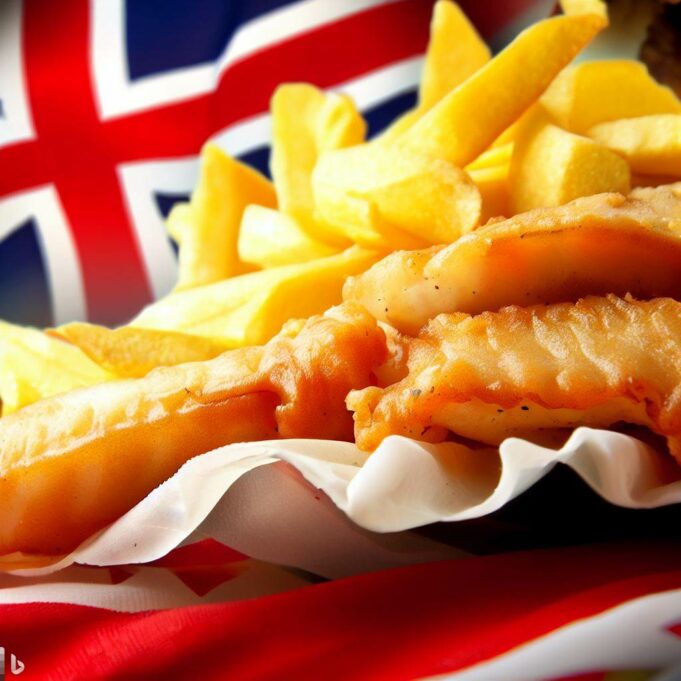Fish and chips are a classic British dish that has been enjoyed for centuries. But how did this humble combination of fried fish and potatoes become such a national icon? In this blog post, we will explore the origins and evolution of fish and chips, from their medieval roots to their modern variations.
The earliest evidence of fish and chips dates back to the 13th century, when Jewish immigrants from Spain and Portugal introduced fried fish to England. They coated the fish in flour and spices, and fried it in oil on Fridays, the Sabbath eve. The fish was then eaten cold on Saturdays, as cooking was forbidden on the Sabbath. This method of preparing fish was popular among the poor, who could not afford fresh meat.
Potatoes, on the other hand, were not native to Europe. They were brought over from South America by Spanish explorers in the 16th century, and gradually spread across the continent. However, they were initially viewed with suspicion and disdain, as they were associated with diseases and poverty. It took a while for potatoes to be accepted as a staple food, especially in Britain, where they faced resistance from the clergy and the monarchy.
The first recorded instance of combining fish and chips was in 1860, when a Jewish entrepreneur named Joseph Malin opened a shop in London’s East End that sold fried fish alongside chips (or chipped potatoes). He had the idea of pairing the two foods after noticing that his customers often bought bread or baked potatoes with their fish. He realized that chips were cheaper and easier to make than bread, and that they complemented the fish well. His shop was a huge success, and soon inspired many imitators.
Fish and chips became a popular street food, especially among the working class. They were cheap, filling, and tasty, and could be eaten with fingers or wrapped in newspaper. They also provided a welcome break from the monotony of boiled meat and vegetables that dominated the British diet at the time. Fish and chips shops, or chippies, sprang up all over the country, often run by Jewish or Italian immigrants. Some of them also offered other fried foods, such as pies, sausages, and mushy peas.
Fish and chips also played a role in British history and culture. During both World Wars, fish and chips were one of the few foods that were not rationed by the government, as they were considered essential for boosting morale and nutrition. Winston Churchill famously called them “the good companions”. Fish and chips also became a symbol of British identity and pride, especially in contrast to the cuisine of other countries. For example, during the 1956 Suez Crisis, some chippies renamed their dish “Suez Fried Fish” to show their support for Britain’s intervention in Egypt.
Today, fish and chips are still widely enjoyed in Britain and around the world. However, they have also undergone some changes over time. For instance, the type of fish used has varied depending on availability and preference. Cod and haddock are the most common choices, but other fish such as plaice, pollock, skate, and halibut are also used. The batter has also evolved to include different ingredients such as beer, vinegar, baking soda, or cornflour. The chips have also become thicker or thinner depending on regional tastes.
Moreover, fish and chips have also been influenced by other cuisines and cultures. For example, some chippies offer curry sauce or gravy as an alternative to salt and vinegar. Some also serve battered sausages or burgers instead of fish. In addition, fish and chips have been adapted to suit different dietary needs or preferences. For example, some chippies offer gluten-free or vegan options for their customers.
Fish and chips are more than just a meal; they are a part of British heritage and identity. They reflect the history and diversity of the nation, as well as its sense of humour and resilience. They are also delicious and satisfying, whether eaten at home or on the go. So next time you fancy a bite of fish and chips, remember that you are not only enjoying a tasty treat, but also celebrating a tradition that has lasted for centuries.







